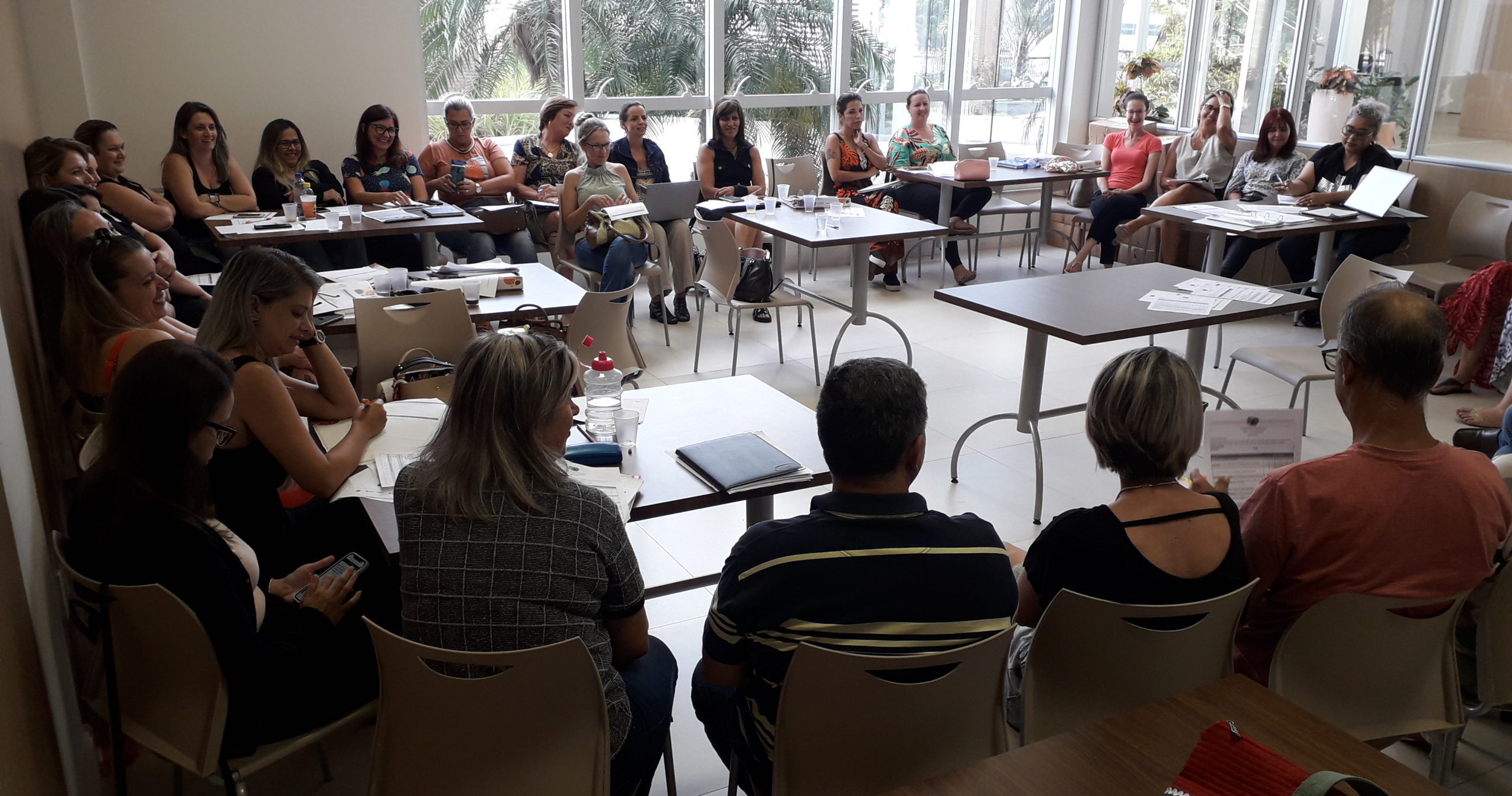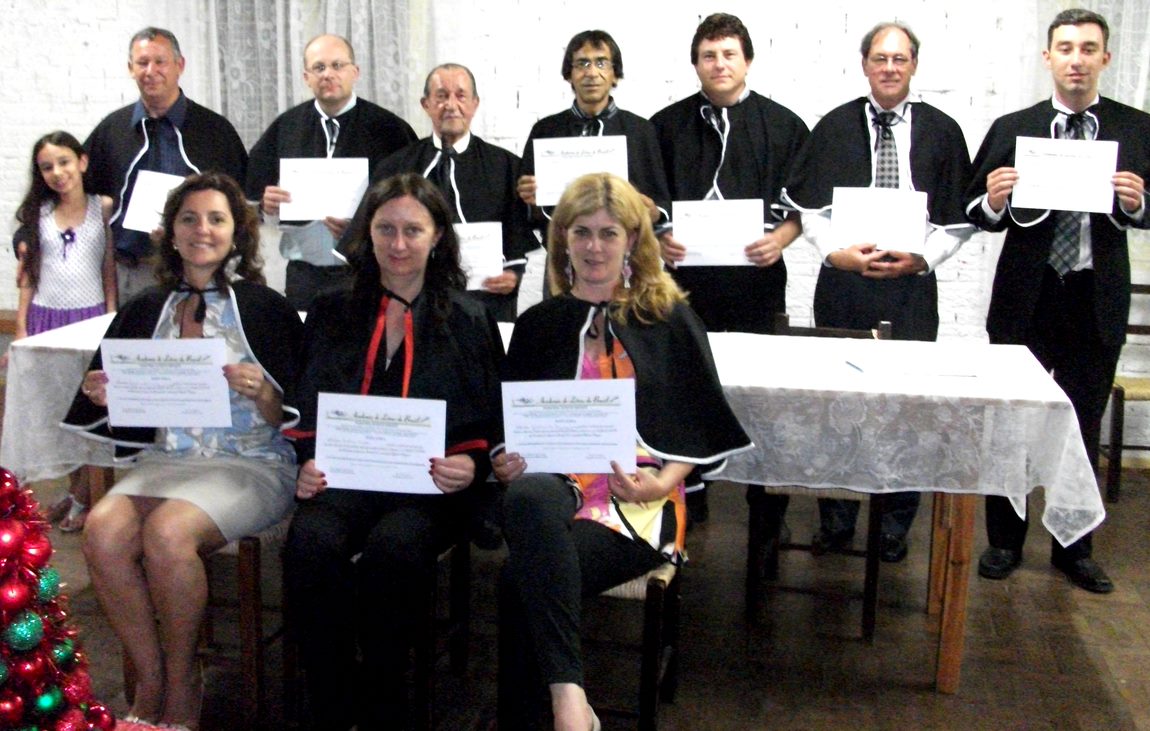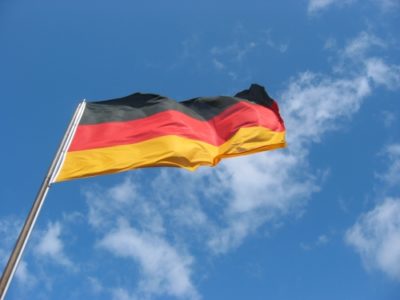Edineia Rauta, Central Press – Translation: Mauro Demarchi
Despite all the challenges imposed by the pandemic in 2020, the Granfpolis Education Development Arrangement (ADE), directly supported by Instituto Positivo, completed the planned actions and took training for teachers, coordinators and school managers, in addition to carrying out a campaign and uniting yet plus the school community in the region. With the broad participation of the 21 municipalities that are part of the Association of Municipalities of Greater Florianópolis – Granfpolis, the actions of 2020 involved more than 1,000 education professionals from the municipal networks and expanded to the entire school community.
“ The year was one of great challenges. The adequacy of schools and the concern with students’ learning made the school community come together to achieve results. We provide important moments for exchanging experiences and ideas, allowing for better decision making in relation to something never experienced in school units. The union between the municipalities and the perseverance of always doing the best is what we can highlight in 2020 ”, comments Cristiane da Fonseca, Social Responsibility coordinator at Instituto Positivo.
One of the year’s outstanding projects was the Teachers’ Day. With the objective of contributing to the strengthening of teachers for the return of face-to-face classes, the initiative held online meetings for teachers of 1st, 2nd and 3rd years of elementary school, with exhibitions and reflections on concerns and anxieties regarding the schooling of children in the context of the pandemic. “ Continuing education is a fundamental process for educators, given the complexity of the pedagogical work, which deals directly with the development of human beings ” highlights professor Amanda Machado Chraim, a specialist in the area and who conducted the work.
The participation of teachers was significant, which demonstrates the interest of professionals in the subject. 22 meetings were held with the participation of 300 teachers from 18 municipalities, and 94% of the participants considered the proposal to work collaboratively in partnership with other municipalities to be positive. At the end of 2020, a survey was carried out to understand what resignifications generated about the concept and methodologies on literacy, and there will be one last meeting in early 2021.
The project Escolares Escolares em Movimento, created in 2018, had adaptations, going from classroom to virtual, in 2020. The meetings had an intense participation, with an average of 350 managers and pedagogical coordinators of municipal schools in the 21 municipalities, willing to dialogue and exchange experiences. There were 52 hours of training, in 18 online meetings of two hours each, in addition to two face-to-face meetings of eight hours each, which occurred before the start of the pandemic.
Following the proposal for a structure for the School Management of Quality Indicators in Education, created by Ação Educativa, Unicef, UNDP and Inep / MEC, the meetings dealt with democratic management and access, permanence and success at school, relevant themes and present on the day the day of professionals. A virtual lecture on well-being and happiness was also held, in order to welcome professionals in the midst of so many adaptations in schools. And in June, the management committee for the School Managers in Movement project was set up, formed by effective professionals from the education departments of the participating municipalities, for the management and deliberation of the project’s demands.
Perhaps one of the projects that most had to reinvent itself in 2020 were educational solutions for literacy and correction of school flow: Se Liga e Acelera Brasil, methodologies created by the Ayrton Senna Institute and applied in the region by the ADE Granfpolis partners. The work dedicated to students who are lagging behind in their studies has taken on a new format. Even in the face of the pandemic and in a process of remote education, three ADE municipalities stood out for choosing to persist in the commitment to apply educational solutions for the literacy of children with age x grade distortion, which had not yet been literate: Tijucas, Paulo Lopes and Alfredo Wagner. Professionals from partner networks were tireless, thinking about alternatives, possibilities, opportunities that were possible to get closer to each other and continue with access to studies. Attentive, present, focused and resilient, they inspired and taught, envisioning the continuity and necessary adjustments for the following year. In all, 70 children completed the cycle of educational solutions and teachers went through 6 training and experience exchange meetings.
The project “ Shall we make this account together? ”, Launched in 2018, with the objective of contributing to the analysis of financial and educational indicators and in the decision making regarding budget organization, had its final phase in March 2020. Alongside the Granfpolis Association of Municipalities, Instituto Positivo performed data analysis and presented face-to-face and individual feedback, with recommendations and a book of indicators for each municipality. Twenty of the 21 ADE municipalities joined the project and 16 of them took recommended actions to improve processes.
This was the case in the municipality of São Bonifácio, which managed to build and approve the salary floor proposal for the local teaching profession. Another highlight is the municipality of Angelina, which further strengthened the pedagogical management, developing assessments for students, making individual feedback to teachers, building a strategic plan based on the identified weaknesses and creating feedback reports per class.
ADE Granfpolis also carried out a campaign to encourage families for non-classroom activities. With parents having to help with activities that were previously exclusively in the classroom, the campaign encouraged the continuity of educational work at home and showed the importance of the school being closer to families. In partnership with the Association of Municipalities of the Greater Florianópolis Region, the Collegiate of Management in Education of the Municipalities of Foz do Rio Itajaí (CoGemfri) and the Positivo Institute, the action reached more than 94 thousand students from the municipal education networks in the region of Granfpolis and their families. The communication pieces, created by the Association of Municipalities of Foz do Rio Itajaí, were used in schools and municipal education departments throughout the territory.
The technical consultant of Instituto Positivo and ADE Granfpolis, Gilmara da Silva, points out that, just as schools needed a new adaptation process, families needed to adapt with the children at home. “ The campaign came to ask parents to help us maintain the indispensable link between family and school in the process of integral training for children and adolescents. One of the most important aspects to maintain the well-being of children is to allow students to remain active in the learning processes so that we can minimize the impacts of social isolation with the suspension of face-to-face classes ”, he highlights.
Focus on Covid 19
To meet the demands and strengthen municipal managers in the face of changes in education caused by the Covid-19 pandemic, the Active Collaboration project was created. The virtual space served to exchange experiences between municipalities in the territory, receiving guidance, dialogues and mutual acceptance, promoting the strengthening of professionals and the group as a whole.
Seven project meetings were held, which included reorganizing school calendars among the main agendas; carrying out non-classroom teaching activities; legislation; general guidelines for structuring the education network for the period of suspension of classes; the positions of the National Education Council; and the definition for the construction of the Jornada de Professores project.
“ We had an atypical year. Parents, teachers, students and, principally, principals had to reinvent themselves to account for their functions and fulfill their main role. For this reason, we ended the year with reflection, looking at what happened and realizing that we had important and fundamental learnings. For this year, we will have new challenges, but with the union of this great group, which is ADE Granfpolis, we will overcome it ”, highlights the Granfpolis educational assistant, Bianca Silveira.
What are ADEs?
Education Development Arrangements (ADE) are a model of networking, in which a group of municipalities with similar geographic proximity and similar social and educational characteristics seek to exchange experiences, plan and work together – and no longer in isolation, adding efforts, resources and skills to jointly solve the difficulties in the Education area. The Arrangements proposal was approved by the MEC in 2011, and included as an option to achieve the goals and strategies provided for in the National Education Plan, approved in 2014 (article 7, paragraph 7).
Dedicated to studying and disseminating the ADEs methodology in Brazil, Instituto Positivo (IP) is a partner of the Association of Municipalities of the Greater Florianópolis Region (Granfpolis), in Santa Catarina, which in a pioneering articulation, launched in 2015 the first ADE the south of the country. “ At the beginning of this work, there were very few municipalities that were organized in Arrangements and, in order to understand in practice how the mechanism worked, IP decided to support and facilitate the implementation of ADE Granfpolis, ” explains Eliziane Gorniak, director of Instituto Positivo.
For those who want to know more about this collaboration mechanism, which currently directs 14 groups and involves 243 Brazilian municipalities for the benefit of Education, Instituto Positivo makes available free of charge the guide “ Education Development Arrangements: paths for implementation and management ”, a document unprecedented at national level that can be accessed free of charge on the Instituto Positivo website.




